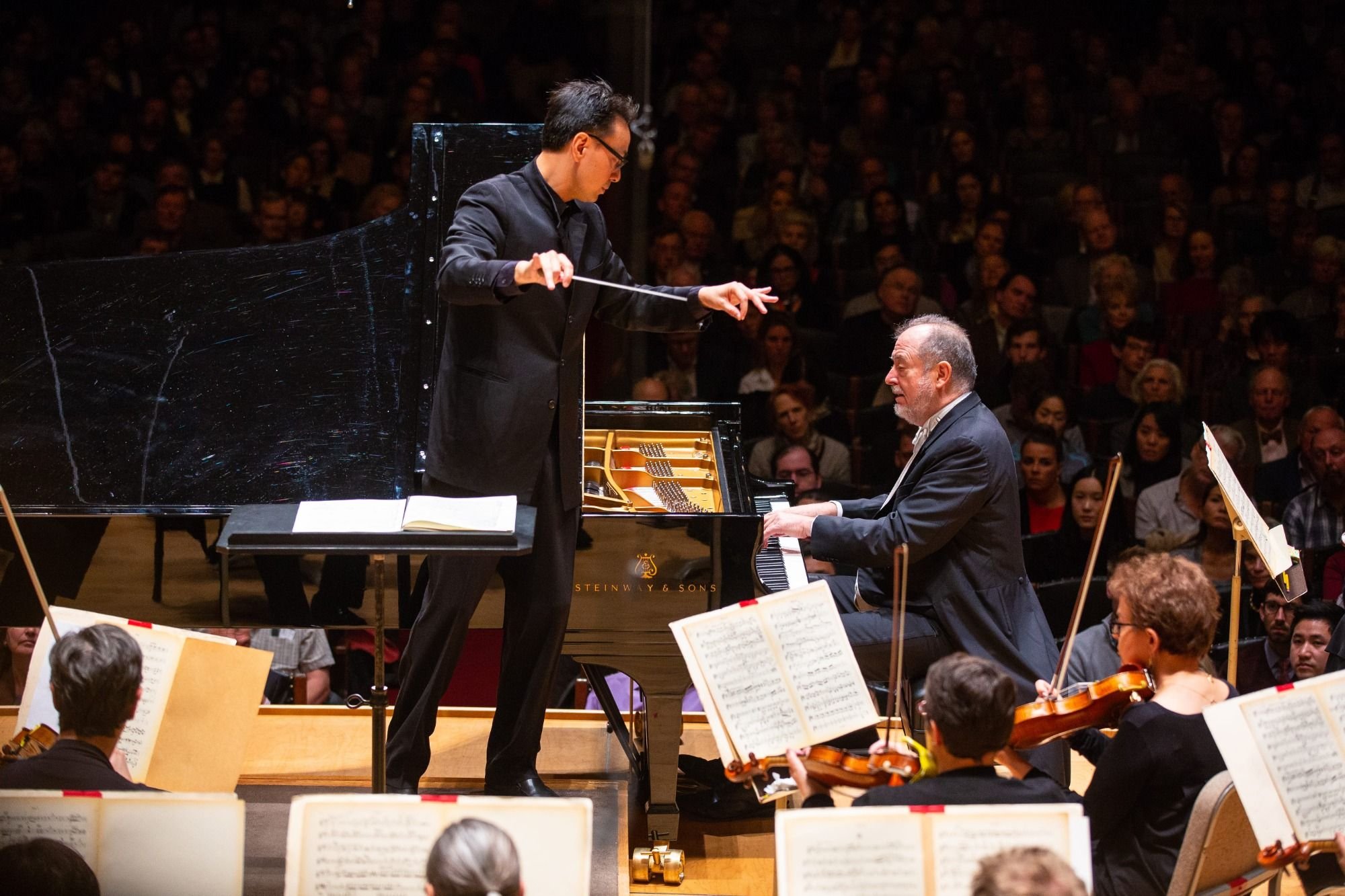The Concert of Youth

Undoubtedly, concert programming, especially for a major orchestra, is an underappreciated art. This season, the Boston Symphony Orchestra has managed maintain its commitment to diverse programming by balancing both incredible depth and breadth. Alongside classics of the orchestral canon, the orchestra will also feature contemporary works by living composers. On Saturday, October 20th, in its second concert of its 2018-2019 season, the BSO presented us with program of seemingly unrelated works by Harbison, Rachmaninoff, and Prokofiev. After the performance, though, we found that the evening was, in fact, a celebration of youthfulness, and this “Concert of Youth” was almost flawless in its execution.
The program began with Harbison’s Remembering Gatsby: Foxtrot, a seven-minute piece which in any other program could be dismissed as a contemporary amuse bouche. But we thought that the piece brought an interesting question to listeners: what does it mean to be young? The piece was inspired by the novel The Great Gatsby, which, of course, explores the subject of youthfulness. The piece, like Fitzgerald’s novel, proposed two conflicting interpretations of youth. The center of the piece was a playful, nonchalant, and jubilant foxtrot complete with saxophone solos. However, this section was framed by an opening and an ending of unison strings playing dissonant, melancholic, and weighty chords. The two styles expressed both the gaiety and the misery of the Jazz Age. More significantly, the juxtaposition also portrayed the conflict faced by an adolescent caught between childhood and adulthood. While the BSO portrayed these contrasting sections effectively, we personally felt that the sudden transitions of the piece (an issue more with the piece itself than with the BSO) prevented us from fully enjoying each, though perhaps the unsettling sense of unease created by the piece’s abruptness was Harbison’s intention.
The concept of youthfulness came into full force during Rachmaninoff’s Piano Concerto No.1, Op. 1, composed when he was just 18 years old. Although it lacks the memorable melodies of Rachmaninoff’s later concertos, and the thematic material is not as well-developed, this concerto is vibrant, evocative, and ebullient and reflects the naïve optimism of an 18-year old. The BSO, under the direction of Maestro Ken David-Masur, captured the youthful quality of the concerto by playing with an unabashed passion. Even the simplest plucks of the string in the basses were played with care and reverberated far beyond the stage into the emotions of the audience. Piano soloist Garrick Ohlsson played all the virtuosic passages in the concerto with ease, but his rendition sometimes lacked the youthful energy displayed by the orchestra. Ohlsson’s interpretation was most convincing in the second movement. Unencumbered by technical runs, he was patient, deliberate, and thoughtful in his rubato – he always took enough time for the audience to enjoy every note of this more introspective slow movement.
With the performance of excerpts from Prokofiev’s ballet Romeo and Juliet, the second half of the concert centered around a youthful theme not yet explored in the performed pieces until that point: love. Shakespeare’s Romeo and Juliet has been criticized as an inaccurate or cartoonish portrayal of young love, but somehow, Prokofiev managed to distill the overly tragic and chaotic storyline into an expression of the pure emotions of each scene. The orchestration of the Suite showcased instrumental solos, including from the saxophone, which is not often heard at Symphony Hall. The concertmaster’s solo in the Prokofiev was the most effective out of her many solos that evening (she had solos in all three pieces), as her intense vibrato beautifully captured the feeling of yearning expressed in this piece. The entire orchestra, not sonically or artistically limited by having to play underneath a soloist, delivered a truly moving performance.
These three different pieces came together to form a cohesive program which, due to the thematic material, likely resonated with young concertgoers! We here at the college radio station WHRB certainly enjoyed the performance, and we look forward to the upcoming concerts of the BSO’s 18/19 season.
Allison Pao and Pablo Rasmussen are radio hosts for WHRB Classical. This semester (Fall 2018), you can hear Allison on Sundays, 3-6pm, and Pablo on Tuesdays, 8-10pm.